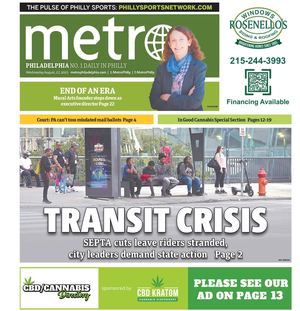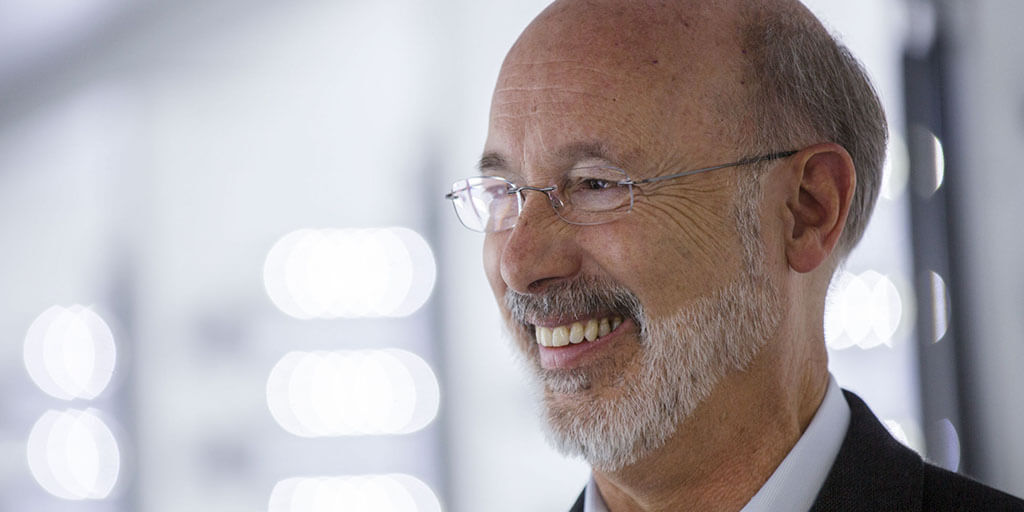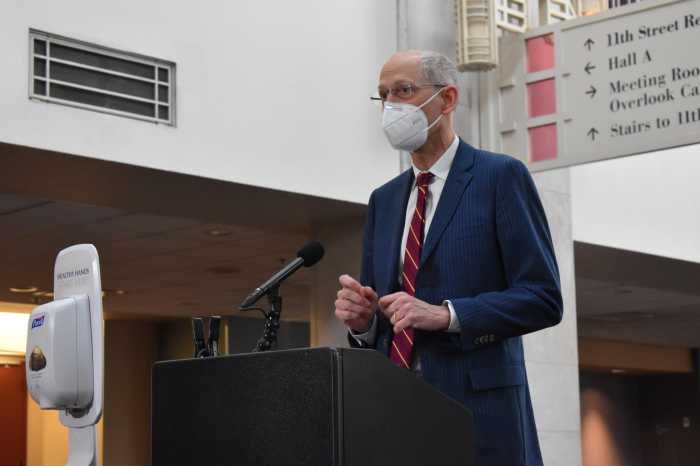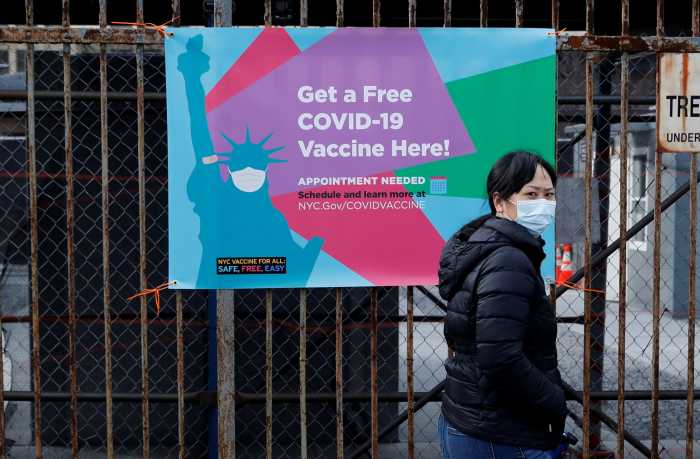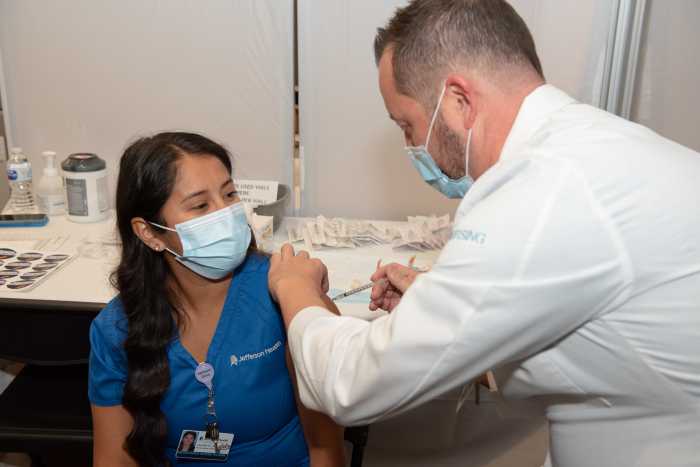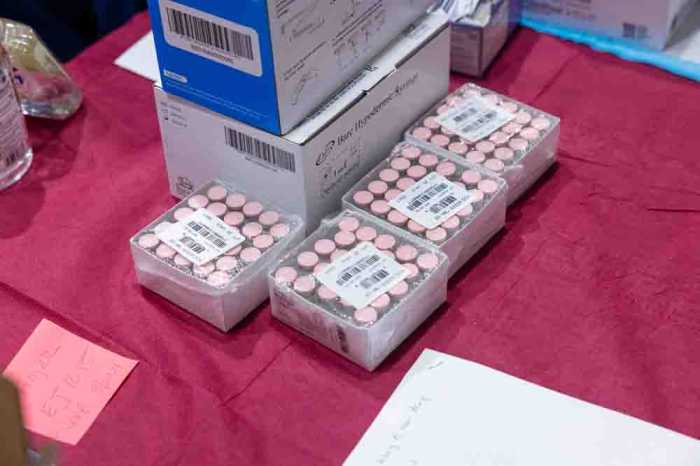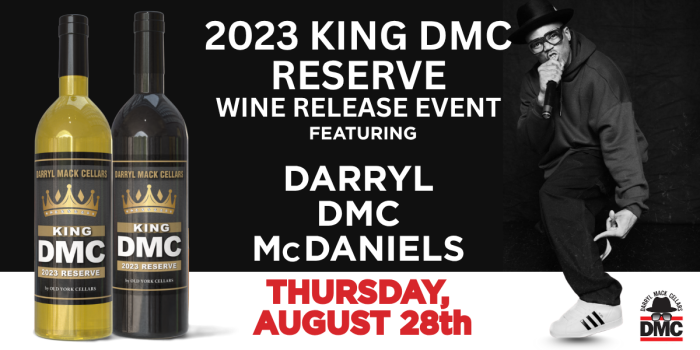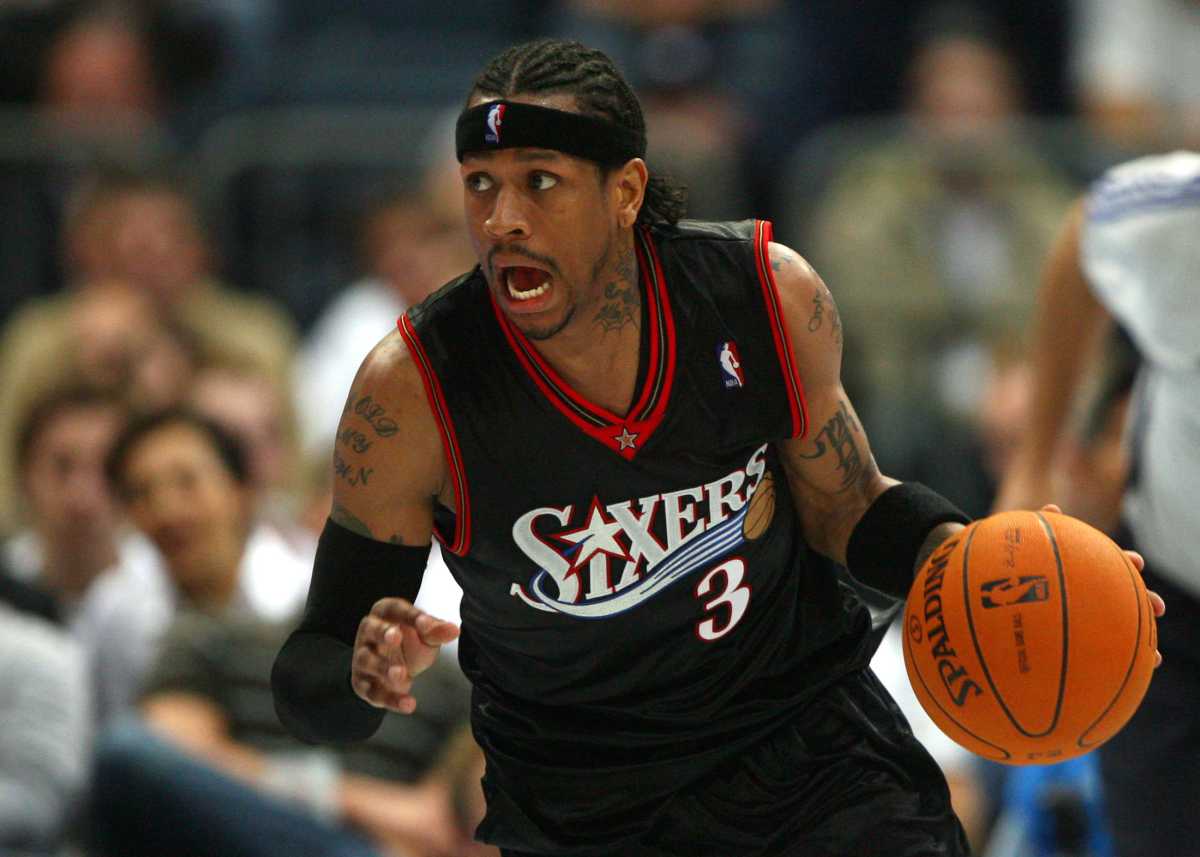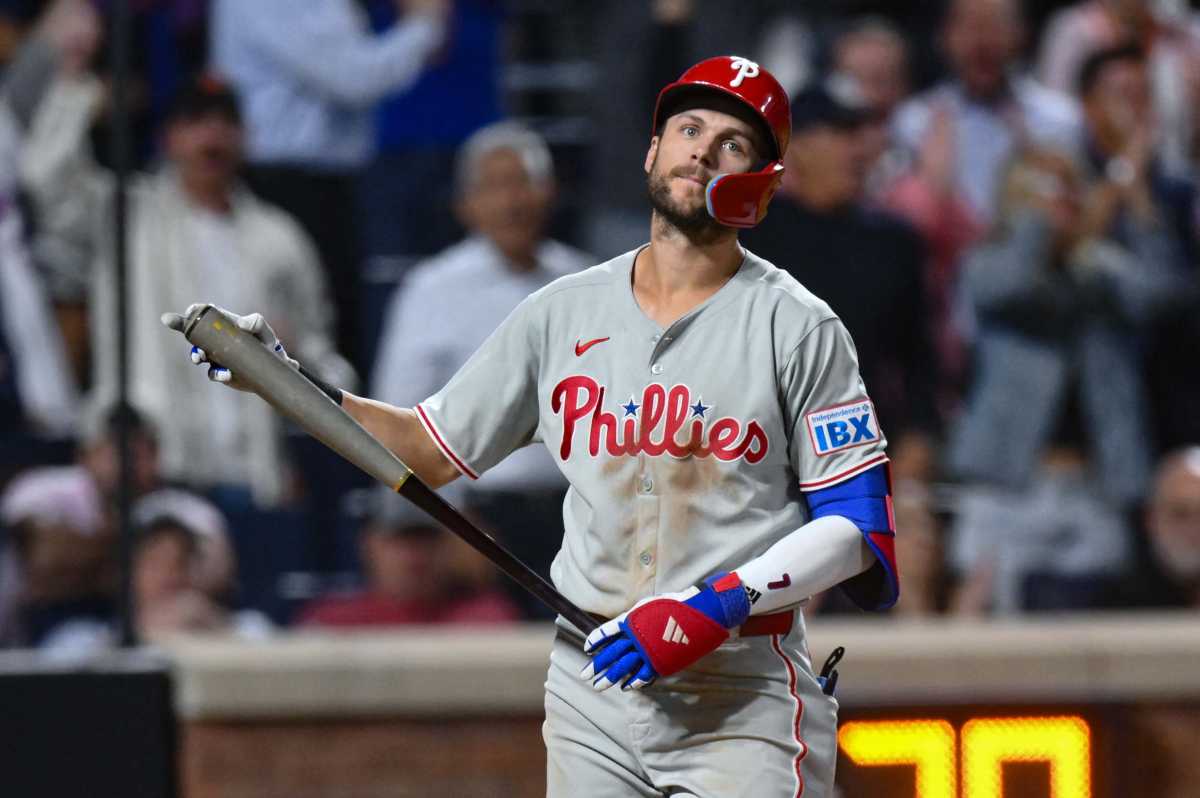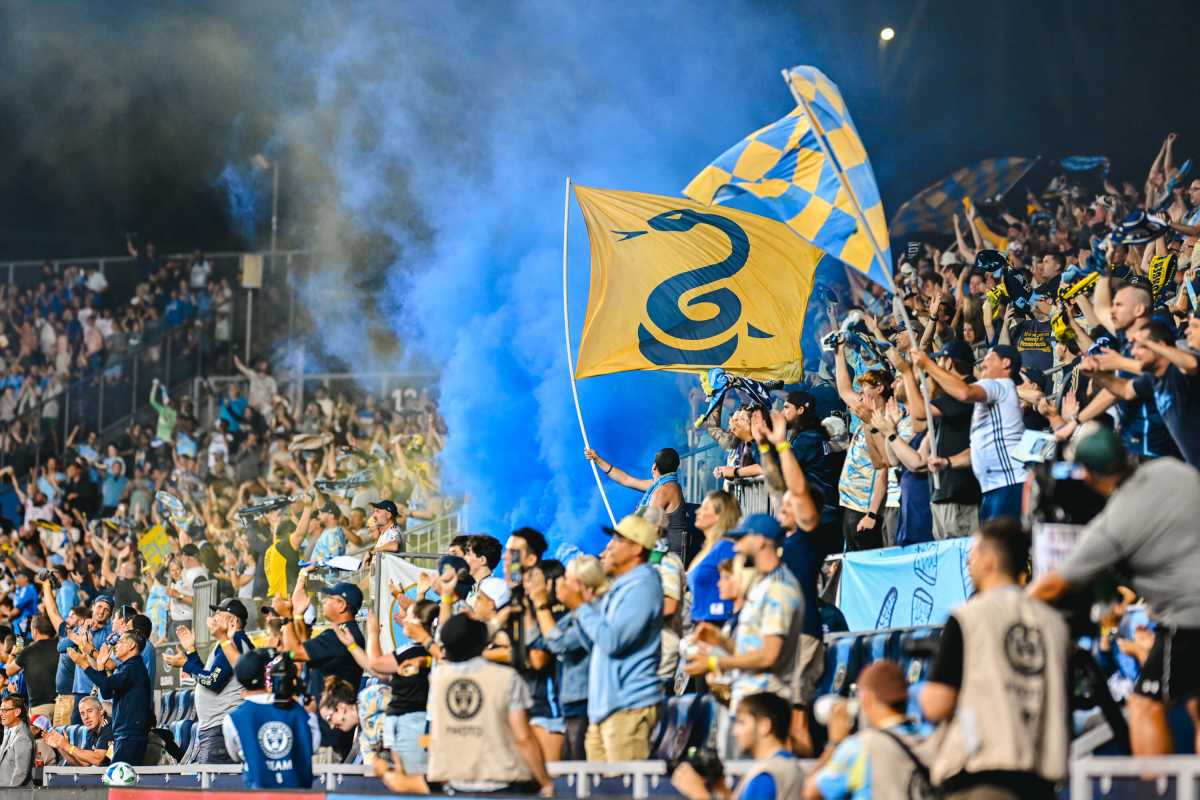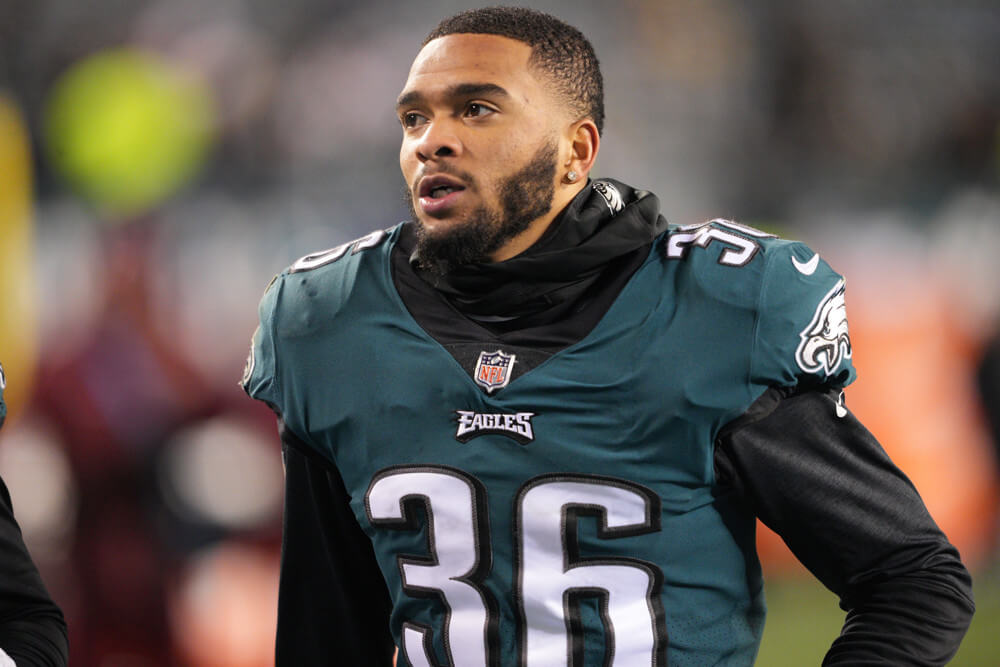Pennsylvania will do away with all of its pandemic-related restrictions May 31, Gov. Tom Wolf’s administration said Tuesday, as case rates continue to drop and more people receive coronavirus inoculations.
A mandate requiring residents to wear masks will remain, though even that rule will be lifted if and when 70% of the state’s adult population is fully vaccinated, officials said.
The decision came a day after the governors of New Jersey, New York and Connecticut said they would ease most limitations May 19.
“With millions of Pennsylvanians getting vaccinated, it’s time to plan the transition back to normal,” state Sen. Art Haywood, whose district covers parts of Northwest Philadelphia and Montgomery County, said in a statement.
It’s unclear what the move means for Philadelphia, where local leaders have set their own COVID-19 measures that have tended to be stricter than the state’s protocols.
“We’re going to review the New Jersey policy and the Pennsylvania policy, and we’ll consider our local policy in light of that,” Thomas Farley, the city’s health commissioner, told reporters Tuesday. “We won’t have any other changes to announce today.”
Farley struck a cautious tone, reminding the public that the virus is still killing 50 people a week in the city and infecting hundreds per day.
“We have many cases of infection occurring right now, and not enough people are vaccinated to protect those people,” he said.
Some previously-announced changes to Philadelphia’s restrictions will take effect Friday, allowing restaurants that meet ventilation criteria to open their dining rooms at 75% capacity and others permitted to operate at half-capacity.
Indoor catered events, such as weddings, will be allowed to resume at 25% occupancy with a maximum of 75 people.
Cases have been dropping in the region, with Philadelphia averaging 384 daily infections last week with a 5% test positivity rate, compared to the prior week’s 478 and 6.1%.
Farley said city officials will be weighing metrics including case counts, hospitalizations, deaths and vaccination rates in determining whether to follow the state in rolling back additional limits.
There is no “magic number” when it comes to the percentage of residents vaccinated, and herd immunity, which some experts say is unlikely in the United States, is “not a useful concept right now,” he added.
“The virus will not be eradicated from this country or this city anytime soon,” Farley said. “We’re going to have to maintain a variety of efforts to keep it from becoming too much of a problem for at least a year.”
Nearly 45% of the city’s population over the age of 15, or more than 567,500 people, have received at least one dose of vaccine, according to the health department.
Centers for Disease Control and Prevention data, which includes Philadelphians inoculated outside the city, indicates that about 36% of the adult population is fully vaccinated.
More than half of Pennsylvanians are at least partially vaccinated, according to the state.
Following an early rush, demand for the vaccine has continued to wane.
Last week, 52,000 doses were administered in Philadelphia, compared to 85,000 the prior week and 112,000 doses a week in mid-April, officials said.
The Federal Emergency Management Agency-backed site at the Pennsylvania Convention Center, which has the capacity to distribute 6,000 doses a day, administered 1,100 on Saturday and about 500 on Sunday.
Farley said the drop-off has been less severe at smaller, neighborhood clinics, a sign that people at this stage of the roll-out are more comfortable getting inoculated closer to home.
On Wednesday, both FEMA-affiliated sites — based at the Convention Center and Esperanza — will switch over to providing second doses, though Esperanza will continue offering first-dose Pfizer shots, officials said.
Both federal vaccine locations are scheduled to close May 25. Second doses for those who visit the Esperanza site over the next three weeks will be distributed at city-run neighborhood clinics.
Johnson & Johnson’s one-shot vaccine will be offered at the Convention Center starting on May 11. During a trial Saturday, patients at the site had the option of choosing between Pfizer and J&J, and 300 picked the former, Farley said.
Philadelphians can make a vaccine appointment by going to www.phila.gov/covid or www.vaccine.gov. Many locations are also conducting walk-ups.
Farley said about 80,000 children in the city will become eligible for the Pfizer vaccine if federal regulators authorize its use for kids between the ages of 12 and 15, which could happen as early as next week.
“We want all those children to be vaccinated before school starts again in the fall,” he said, though he later added that city officials have not considered mandating the shots for students.
If the U.S. Food and Drug Administration approves the change, families will be able to bring their children to currently-operating vaccine sites, and some pediatric providers will also begin administering doses, Farley said.
